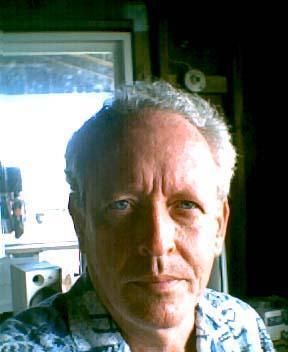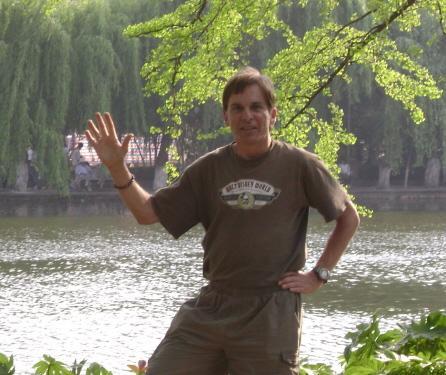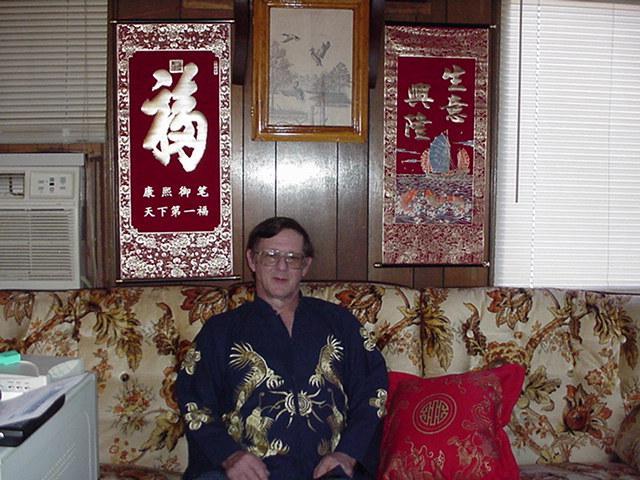| What is Energy? | |
|---|---|
| May 29, 2006 14:06 | |
 | This isn't about any particular destination. It is about the fuel we use to get there. I am author of a book entitled "What is Energy?". I am giving away free e-Book copies to anyone who requests. Write to yahoo.com|whatisenergy. The concept of energy is extremely important to science and technology, but is very poorly defined. Energy isn't something we think about. Energy is how we think. Energy is more cultural than scientific. Energy is definitely not Chinese. Instead, energy is very specific to Western European culture 1780-1930. Accepted energy theory contains flaws that limit technological potential. This will ultimately limit economic growth. |
| May 29, 2006 21:42 | |
 | Why not tell us more here, please ? |
| May 30, 2006 17:00 | |
 | In Europe, the medieval industrial belt developed in northern Europe, mostly in England, France, and Germany. Medieval industry depended upon two resources, forests and streams. Medieval industry developed where both forests and streams were abundant. Forests were used to make charcoal, which was used to make iron. Streams powered water wheels, which supplied mechanical power. The period of rapid industrial development was 1100-1300 AD. By 1300, all of the available forests and streams were being used. Further industrial development was not possible until some new resource could be found. That resource was coal. Iron could be made using coal rather than wood. Coal could also be used to power steam engines. Both of these developments took place in England, during the late 1700s. Energy theory was developed to explain the new steam engine. At first, energy theory was of greater interest to engineers than to scientists. Energy theory developed within the larger context of the scientific movement. The scientific movement was based upon late medieval Christian theology. Until after Charles Darwin, the sciences were so deeply rooted in Christian theology that science and religion were inseparable. Even today, some of the most basic tenets of physics are still based upon theology. I challenge two basic assumptions that underlie all of contemporary physics. First, I challenge the way we use the three dimensional coordinate system. We are assuming that the universe exactly parallels the structure of our mathematics. Second, I challenge our assumption that field assigns qualities to empty space. There is nothing in science more dangerous than an unchallenged assumption. Every assumption should be carefully defined and rigorously examined. If we are to experience massive breakthroughs in science and technology, they will most likely happen when some longstanding assumption is challenged and overturned. |
| May 30, 2006 20:53 | |
 | Thanks Dave. But this sounds too complicated & technical for a layman like me. |
| May 31, 2006 01:44 | |
 | Oh,my god!But I have interest in it:-) |
| Jun 1, 2006 11:40 | |
 | To put this in practical perspective: Energy is how we think. The fact that we think in a particular way does not necessarily make it inevitable. Consider 1885. In 1885, the horse and buggy were believed to be necessarily inevitable. The smart money was still betting on the horse and buggy. Today, the smart money is buying stock in energy companies. |
| Jun 1, 2006 19:30 | |
 | Hello, David I am energy, windenergy to be exact. All humans consist of 3 entities...we all have a body, we all have a mind and we all have a spirit. Because I have chosen a solitary life (no wife, no kids) in search of essential truths, I appreciate your work. The western civilization has become a glutton of energy use. The Chinese are 'trying to catch up' and, in fact, have become the world's leader in coal consumption (1.53 billion tons/year). According to National Geographic, March 2006, China's need for coal will double to 3.24 billion tons/year by 2025. Considering the current pollution issues China must deal with, this statistic is staggering. What it all comes down to is humans are taught the benefits of consumption at a very early age. Who teaches children the benefits of energy conservation? Who teaches the children in China that the population explosion will create increasing consumption and demands for more energy? Me, that's who....and you? Are you with me? |
| Jun 7, 2006 16:40 | |
 | To Windenergy: I view myself in more pragmatic terms. I am far more concerned with fossil fuel consumption in the United States. The reason: We are the largest consumers of fossil fuels. True, China now does consume more coal than the U.S. However, their population is four times greater than the U.S. On a per capita basis, the U.S. consumes three times as much coal as China. With regard to petroleum, the numbers are far worse. The U.S. is the number one consumer, consuming 20 billion barrels per year. China is second, consuming 6 billion barrels per year. Per capita, the U.S. consumes 14 times as much as China. The problem with this pervasive use of fossil fuels (coal and oil) is that the present pattern of consumption is not sustainable. In the longer term, it will not be possible to sustain economic growth that will be based upon oil consumption. The oil won't be there. There is no question that consumption of oil and coal has fueled massive economic growth over the past two centuries. Beyond the next 20 years, however, further economic growth must be based upon something other than oil and coal. My personal home is powered by solar electricity. However, I am not an advocate of "alternative energy" per se. I don't even like the term. We need to carefully codify and rethink our culture's patterns of thought that relate to "energy". Energy isn't a problem to be solved. Energy is itself the question. Should "energy" be retained at all, or should the whole pattern of thought be discarded? I am hoping that China and several other developing countries will be able to bypass energy altogether. They are not yet as heavily invested in the old pattern of thought as we are. They are spending massively on capital development. I hope that they will begin to structure their development around some new pattern of scientific and technological thought. We Americans need to remember that "energy" is 100% Western, 0% Chinese. If some new pattern develops, it will likely have no greater respect for "alternative energy" than for coal and oil. |
| Jun 7, 2006 18:37 | |
 | Dave, Can we carry this one step further?? Not only are we using so much fossil fuel but the burning of so much coal is poisioning the land,air,water and wildlife,especially fish with heavy metals.Most noteably Mercury!! I bring this up because of another post in the forum about the meaning of "Guilt Free Fish" I think it all goes hand in hand. |
| Jun 9, 2006 18:38 | |
 | To LoveChina2: I'm not disagreeing with what you are saying. However, there are two issues. One is the actual pollution itself. The other is the perceived need to pollute. I am more concerned with the latter than with the former. Pollution will happen if people believe they need to pollute so as to pursue economic development. If the perceived need can be eliminated, then the pollution will ultimately abate anyway as technologies move away from coal. We need to carefully consider all aspects of science and technology that relate to economic development. Clearer, better defined, more functional science will produce better technologies. The root cause of coal-based pollution is not the coal itself, but rather the perceived need to burn it. Dave Broyles |
| Jun 9, 2006 21:24 | |
 | Coal is not going to last forever and neither is oil. Its not likely to happen in our life-time so few people really care about it. They go on digging and they go on drilling in order to satisfy our insatiable appetite for energy. Global warming is an issue but never taken up as an issue. The end of the world is just too far away for many to even bother about it. Decision makers are killing the environment while on the other hand, green consumers & naturalists are trying to save the environment and the rain forests. It is a lose-lose situation. Nat Geo has a saying : "When the buying stops, the killing can too". Meaning, use less coal so there will be less mining..........but then, there will also be lesser jobs for the people. |
Page 1 of 2 < Previous Next > Page:
Post a Reply to: What is Energy?










 Copyright © 1998-2026 All rights reserved.
Copyright © 1998-2026 All rights reserved.